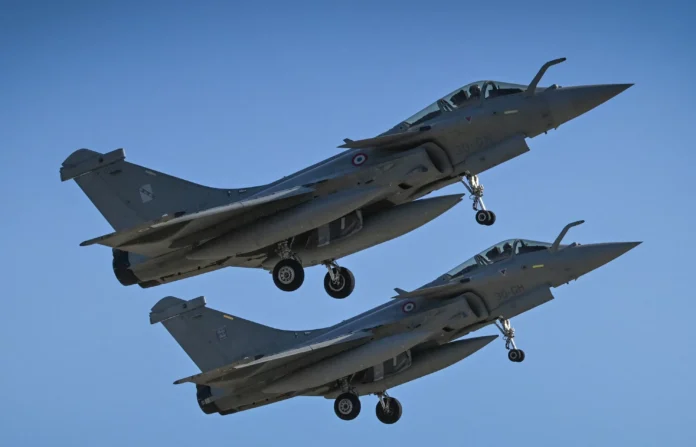Serbia’s President Aleksandar Vucic recently announced that his country is on the brink of closing a deal to purchase 12 French-made Rafale fighter jets, marking a significant shift from its reliance on Russian military equipment. This historic agreement comes as a result of years of determined efforts by Vucic’s government to modernize and strengthen Serbia’s armed forces.
The Rafale deal, estimated to be worth around 800 million Euros, is expected to include a significant technology transfer element, allowing Serbia to equip and maintain the jets independently, as well as extensive training for the Serbian Air Force.
The Serbian President further stated that this deal is of utmost importance for the country’s national security and for the country’s aspiration to join the European Union. It will not only enhance Serbia’s military capabilities but also boost the country’s status on the global stage.
The Rafale jets are considered to be one of the most advanced fighter jets in the world, with unmatched capabilities in air-to-air, air-to-ground, and reconnaissance missions. With the ability to carry a variety of missiles and weapons, the Rafale is a versatile and powerful addition to any air force.
This purchase marks a significant departure from Serbia’s previous reliance on Russian-made fighter jets. While the ties between Serbia and Russia remain strong, President Vucic’s government has made it clear that the country’s military modernization is a top priority and that it is open to exploring partnerships with other countries.
The decision to purchase French-made jets also reflects Serbia’s growing cooperation with France, a key ally and partner in the EU’s enlargement process. This agreement is a testament to the strong diplomatic ties between the two countries and is expected to further strengthen their relationship.
Furthermore, this deal has the potential to create economic benefits for both Serbia and France. It is expected to boost Serbia’s domestic defense industry and create job opportunities in the country. On the other hand, France is set to gain a valuable partner in the Balkans, opening up new avenues for trade and investment.
In a region that has faced its fair share of instability and conflicts, President Vucic’s decision to strengthen Serbia’s military capabilities is a step towards ensuring stability and security for the country and the region at large. The Rafale deal will act as a deterrent against any potential threats, sending a clear message that Serbia is ready to defend its sovereignty and territorial integrity.
Additionally, this purchase is a clear indication of Serbia’s commitment to its NATO Partnership for Peace program, which aims to strengthen cooperation and interoperability with NATO member countries. As a candidate country for EU membership, this deal also aligns with Serbia’s goal of integrating into Euro-Atlantic structures and becoming a contributor to global security.
The Rafale deal has already garnered widespread support and praise from both the Serbian public and international community. It is a testament to President Vucic’s vision and leadership in transforming Serbia into a modern and prosperous country.
As the country moves towards the finalization of this landmark agreement, the future looks promising for Serbia’s armed forces. The Rafale jets will undoubtedly enhance Serbia’s military capabilities and serve as a symbol of the country’s progress and determination to join the ranks of the world’s most advanced nations.
In conclusion, President Vucic’s announcement of the Rafale deal marks a significant milestone in Serbia’s journey towards modernization and integration into the European Union. This purchase sends a clear message to the world that Serbia is committed to defending its sovereignty and contributing to global peace and security. With the Rafale jets, Serbia takes a giant leap towards a brighter, more secure future.


